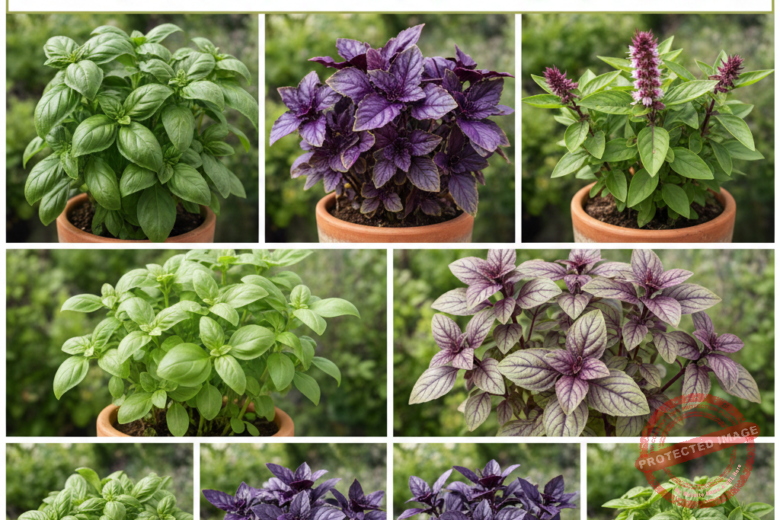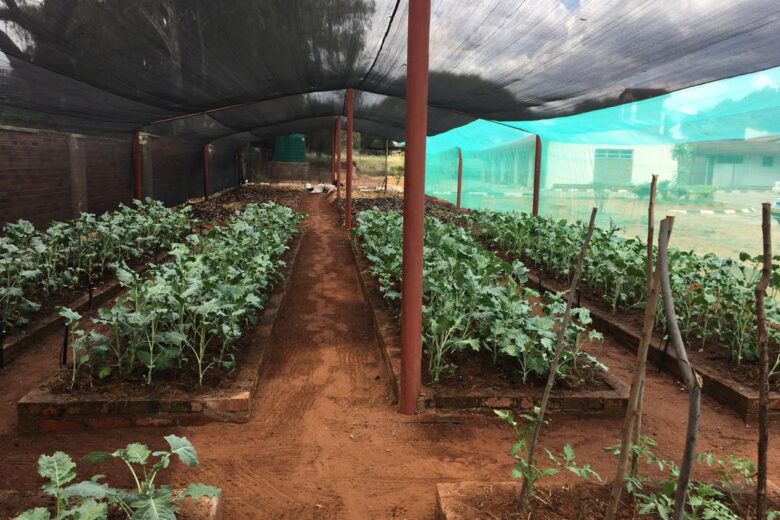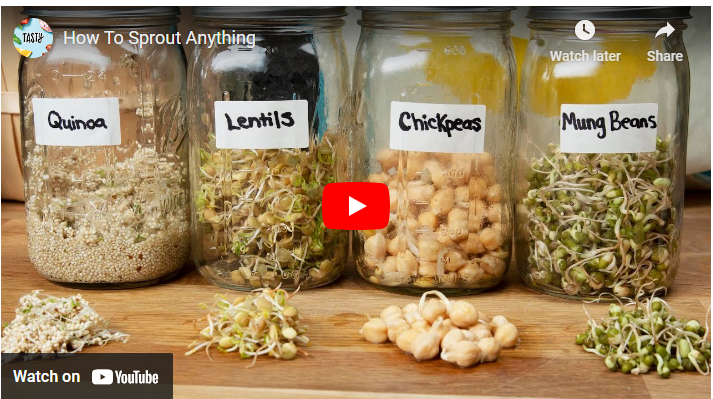Alluvial soil is a type of soil that is formed from the sediment deposited by moving water, such as river or rainwater. It is highly fertile and is considered one of the most important soil types for agricultural production.
Alluvial soils are typically rich in minerals, organic matter, and nutrients, making them ideal for growing crops. There are a variety of crops that are suitable for alluvial soil, including grains, vegetables, fruits, and legumes.
This article will provide an overview of the types of crops that can be grown on alluvial soil, as well as some tips for successful cultivation.
Crops Suitable For Alluvial Soil
Alluvial soil is a type of soil that is typically found near rivers, streams, and other bodies of water, and it is composed of silt and sand particles. Alluvial soil is highly fertile, making it an ideal soil type for growing a variety of crops.
Read Also: List OF Crops Suitable For Alkaline Soils [Farmers Guide]
Grains
Grains are small, hard, dry seeds that are harvested for human and animal consumption. Common grains suitable for alluvial soil include Rice, barely, wheat, maize, pearl millet, and sorghum are all grains that can be grown on alluvial soil.
Vegetables
Vegetables are edible plants that are consumed as a part of a meal. Common vegetables suitable for alluvial soil include Cucumbers, eggplants, tomatoes, beans, okra, lettuce, spinach, cabbage, kale, broccoli, cauliflower, and peppers are all vegetables that can be grown on alluvial soil.
Read Also: List Of Crops Suitable For Acidic Soil [Farmers Guide]
Fruits
Fruit is the edible part of a plant, usually containing seeds or a core. Popular fruits suitable for alluvial soil include Apples, pears, melons, grapes, peaches, and oranges are all fruits that can be grown on alluvial soil.
Legumes
Legumes are seeds or fruits of a plant belonging to the Leguminosae or Fabaceae family. Commonly planted legumes suitable for alluvial soil include Peas, lentils, peanuts, chickpeas, mung beans, black-eyed peas, kidney beans, pinto beans, navy beans, and lima beans are all legumes that can be grown on alluvial soil.
Cereals
Cereal crops are grasses which are cultivated for their edible grain. Common cereal crops suitable for alluvial soil include Oats, barley, rye, and millet are all cereals that can be grown on alluvial soil.
Read Also: List Of Crops Sensitive To Salinity [Farmers Guide]
Root Crops
Root crops are edible plants that are grown for their edible roots. Common root crops suitable for alluvial soil include Carrots, sweet potatoes, beets, and turnips are all root crops that can be grown on alluvial soil.
Tree Crops
Although tree crops are not commonly grown using alluvial soil. however, it is possible to grow. Some tree crops such as fruits, nuts, and spices suitable for alluvial soil include Citrus fruits, olives, almonds, walnuts, pecans, chestnuts, pears, cherries, plums, and avocados.
Flowers
Flowers suitable for alluvial soil include Marigolds, daisies, petunias, and roses.
Components of Alluvial Soil
Alluvial soil is a type of soil made up of sediments deposited by water. It is typically found in floodplains, river beds, and other areas where water has deposited material over time.
Read Also: 100 Crops Resistant To Drought
Alluvial soil is usually nutrient-rich and well-drained, making it an ideal soil for growing crops.
1. Coarse Fragments
Coarse fragments are the largest particles found in alluvial soil. These fragments include gravel, stones, and stones with sand and clay. Coarse fragments help to provide drainage and aeration in alluvial soil.
2. Sand
Sand is the second largest particle found in alluvial soil. Sand is made up of particles that are fine and rounded, making it the ideal soil for growing plants. Sand also helps to provide drainage and aeration.
3. Silt
Silt is the smallest particle found in alluvial soil. It is made up of very fine particles that give the soil a silty texture. Silt helps to retain moisture and keep the soil from becoming too dry.
Read Also: 50 Suitable Crops for A Kitchen Garden
4. Clay
Clay is the most abundant particle in alluvial soil. Clay particles are very small and form a cement-like bond when wet. Clay helps to retain moisture and nutrients in the soil.
5. Organic Matter
Organic matter is a type of material that is derived from plant and animal remains. It is an important component of alluvial soil as it helps to improve soil structure and enhance fertility.
Soil Preparation Techniques for Planting Crops Suitable For Alluvial Soil
1. Deep Ploughing
Deep ploughing is one of the most important soil preparation techniques for alluvial soil. This involves turning over the soil to a depth of at least 8-10 inches and removing any weeds, stones, and other debris. This will help aerate the soil and improve its fertility.
2. Rotation of Crops
Rotation of crops is another important soil preparation technique for alluvial soil. This involves growing different crops in the same field in different years. This helps to reduce soil erosion and improve soil fertility by increasing the organic matter, allowing for better water retention, and providing nutrients for the crops to grow.
Read Also: Plants Suitable For A Conservatory
3. Addition of Organic Matter
Adding organic matter like compost, manure, and green manure can help to improve the fertility of alluvial soil. This will provide the soil with essential nutrients needed for the growth of crops.
4. Applying Fertilizers
Fertilizers can also be used to enhance the fertility of alluvial soil. It is important to apply the correct amount of fertilizer according to the crop requirements. This will help to improve the crop yield.
5. Irrigation
Irrigation is also essential for alluvial soil. This aids in maintaining soil moisture and keeps it from drying out. It also helps to remove excess water, which can reduce the fertility of the soil.
Benefits of Growing Crops Suitable For Alluvial Soil
- Alluvial soil is one of the most fertile soils available, making it ideal for growing a wide variety of crops.
This type of soil is rich in organic matter, which helps retain moisture and nutrients, and is well-drained, making it suitable for growing a diverse range of crops.
- Alluvial soil is also known to have a high capacity for water retention, which helps the crops to grow well during the dry season. It also helps to conserve water, as it is able to store more water than other soils, meaning that irrigation is not essential.
- Growing crops suitable for alluvial soil can improve the soil fertility, as the organic matter in the soil helps to replenish the nutrients used by the crops. This helps to maintain healthy soil and ensures that the crops are able to grow to their full potential.
- Alluvial soil is also known for its ability to absorb and retain nutrients, which helps to reduce the need for fertilizers and helps the crops to grow in a healthy manner.
The use of fertilizers can also be reduced, as alluvial soil is able to provide the necessary nutrients for the crops.
- Growing crops suitable for alluvial soil can help reduce the risk of soil erosion, as the soil is able to hold onto the soil particles.
This helps to prevent the loss of topsoil and keeps the soil in place, which can help to maintain soil fertility and ensure that the crops are able to grow in their optimal conditions.
- Alluvial soil is also known for its ability to retain heat, meaning that the crops are able to benefit from warm temperatures during the colder months. This helps to support the growth of the crops and helps to ensure that the crops are able to reach their full potential.
How to Control Pest and Disease for Crops Suitable For Alluvial Soil
If you plant your crops using alluvial soil, here are some vital pests and disease control strategies you need to apply.
1. Crop rotation
Crop rotation is a key practice for controlling pests and diseases in crops suitable for alluvial soil. Rotating crops on a regular basis prevents the buildup of pests and diseases in the soil, and helps to keep the soil balanced and healthy.
2. Mulching
Mulching is a great way to help control pests and diseases in crops suitable for alluvial soil. It helps to keep the soil temperature and moisture levels consistent, which can help prevent the spread of pests and diseases.
3. Irrigation
Proper irrigation is essential for controlling pests and diseases in crops suitable for alluvial soil. Make sure to water the crops evenly and avoid over-watering, as this can lead to disease and pest problems.
4. Use Of Organic Fertilizers
Using organic fertilizers is a great way to help control pests and diseases in crops suitable for alluvial soil. Organic fertilizers help to provide important nutrients to the soil, while also offering protection against pests and diseases.
5. Monitor The Soil
Monitoring the soil is important for controlling pests and diseases in crops suitable for alluvial soil. Keeping an eye on the soil’s pH levels, nutrients, and other factors can help to identify potential problems before they become an issue.
6. Use Of Beneficial Insects
Using beneficial insects can be a great way to help control pests and diseases in crops suitable for alluvial soil. Ladybugs, lacewings, and other beneficial insects can help to keep pest populations in check, while also providing natural pest control.
7. Use Of Pesticides
Using pesticides can be a useful tool for controlling pests and diseases in crops suitable for alluvial soil. However, it is important to only use pesticides when absolutely necessary and to follow all safety guidelines for their use.
Irrigation Techniques For Growing Crops Suitable For Alluvial Soil
Alluvial soil is a type of soil that is composed of silt, sand, and clay particles deposited by rivers and streams.
It is usually found in low-lying areas near rivers and streams. Alluvial soil is very fertile, but it often requires additional water for optimal crop growth.
Flood Irrigation
One of the most common irrigation techniques for alluvial soils is flood irrigation. This method involves flooding the entire field with water, providing an even and consistent supply of moisture to all areas of the field. It is a simple and cost-effective method of irrigation, though it can be wasteful if not done correctly.
Drip Irrigation
Drip irrigation is another popular irrigation technique for alluvial soils. This method involves using tubes or hoses to slowly distribute water to the roots of the plants, providing a precise and efficient delivery of water. Drip irrigation is especially beneficial for crops that require precise amounts of water, such as vegetables and fruits.
Sprinkler Irrigation
Sprinkler irrigation is also an effective irrigation technique for alluvial soils. This method involves using a system of pipes and sprinklers to evenly distribute water over a large area. Sprinklers can be adjusted to deliver water to specific areas, and they are also less wasteful than flood irrigation.
Subsurface Irrigation
Subsurface irrigation is another irrigation technique that is suitable for alluvial soils. This method involves installing a series of underground pipes and sprinklers that distribute water directly to the roots of the plants.
This method is particularly beneficial for crops that are grown in deep soils, as it eliminates the need for frequent irrigation.
Fertilizer Requirements for Growing Crops Suitable For Alluvial Soil
- Alluvial soil is generally low in organic matter, so adding organic matter in the form of compost or manure is essential to increase fertility and improve soil structure.
- Adding phosphorus fertilizer can help increase nutrient availability and encourage more vigorous root growth.
- Potassium is also important for plant growth and should be added in the form of potassium sulfate or potassium chloride.
- Adding a balanced fertilizer that contains nitrogen, phosphorus and potassium can help provide the necessary nutrients for optimal crop growth.
- Adding trace elements such as zinc, iron, manganese, boron and copper can improve crop yield and quality.
- Adding gypsum to alluvial soil can help break up clay particles and improve drainage.
- Watering regularly and deeply is important to keep the soil moist and allow nutrients to be absorbed more efficiently.
The Best Time to Plant Crops Suitable For Alluvial Soil
The best time to plant crops suitable for alluvial soil is in late summer or early fall, as the soil is still warm and has a higher water content. This warm, moist soil helps the crops take root and grow faster. Planting in late summer or early fall also allows enough time for the crops to mature before the first frost of winter.
Advantages of Growing Crops in Alluvial Soil
- Alluvial soil is extremely fertile due to the deposition of sediment over long periods of time. This makes it ideal for growing crops as it provides essential nutrients for the plants to thrive.
- Alluvial soil is very rich in organic matter, which helps to improve the soil structure and provide good aeration for the roots of the crops.
- Alluvial soil also has a high water-holding capacity, which helps to keep the crops properly hydrated throughout the growing season.
- The presence of other minerals such as iron, manganese and phosphorus in alluvial soil is beneficial for crop growth and development.
- Alluvial soil is generally free from pests and diseases, making it an ideal environment for growing crops.
- Alluvial soil has a higher pH level than other soil types, which helps to ensure that the crops get the necessary nutrients without becoming too acidic.
Challenges of Crops Suitable for Alluvial Soil
Here are some common challenges faced when planting crops suitable for alluvial soil.
Poor Nutrient Supply
Alluvial soils are generally known for having low nutrient content, making it difficult for farmers to grow crops that require high nutrient levels.
High Water Retention
Alluvial soils are known for their high water retention, which can be both beneficial and detrimental. Excessive water can cause waterlogging, leading to oxygen deprivation and root rot.
Poor Drainage
Alluvial soils typically have poor drainage, which can make it difficult to grow crops that require well-drained soils. Poor drainage can also lead to waterlogging and root rot.
High Salinity Levels
Alluvial soils tend to have higher salinity levels than other soils, which can be detrimental to some crops.
Low pH Levels
Alluvial soils tend to have a low pH level, making it difficult to grow some crops. However, some crops are tolerant to low pH levels.
Erosion
Alluvial soils are prone to erosion due to their flat terrain. This can make it difficult to grow certain crops as the soil can become depleted of necessary nutrients and other minerals.
Disadvantages of Growing Crops in Alluvial Soil
Alluvial soil is good for planting but there are some drawbacks to using the soil. These include:
- Alluvial soil is usually very nutrient-deficient and acidic, making it difficult to grow crops in.
- Alluvial soil is prone to waterlogging, which can lead to anaerobic conditions that are detrimental to the growth of crops.
- Alluvial soil is also prone to erosion, which can reduce the fertility of the soil over time and make it difficult to sustain crop production.
- There is also a risk of salinization in alluvial soils due to the occasional flooding, which can make the soil too salty for crops to grow.
- Alluvial soils tend to be low in organic matter, making it difficult for plants to access the essential nutrients they need to thrive.
- Alluvial soils are also susceptible to compaction, which can prevent air and water from reaching the roots of crops, leading to reduced yields.
Tips to Grow Crops with Alluvial Soil
Here are few tips to grow crops with alluvial soil.
1. Improve The Soil Structure
Alluvial soil is composed of sand and silt and has low organic matter content, so it requires improvement to make it suitable for growing crops. Adding compost to the soil can help improve its structure and increase its fertility.
2. Add Organic Matter
Adding organic matter to the soil can help it retain moisture and improve its fertility, which will help crops grow better. Compost, manure, and green manure can all be used to add organic matter to the soil.
3. Test The Soil
Testing the soil is important before planting crops in alluvial soil. This will help determine the soil’s fertility and what nutrients it may be lacking. If necessary, fertilizers can be added to the soil to supplement its nutrient content.
4. Adjust Irrigation
Alluvial soil is prone to waterlogging, so it is important to adjust the irrigation accordingly. Irrigation should be done infrequently and deeply, allowing the soil to dry out between watering sessions.
5. Choose Suitable Crops
Not all crops do well in alluvial soil, so it is important to choose crops that are suitable for the soil type. Crops like maize, millet, and sorghum are some of the crops that do well in alluvial soil.
Steps On How To Grow Crops Using Alluvial Soil
Follow the step below to plant crops in alluvial soil.
- Test the soil for its nutrient levels. Alluvial soil is typically high in nutrients, but it is important to know what it is lacking before planting.
- Till the soil. This will loosen it up and allow for better drainage.
- Add organic matter to the soil. This will help retain moisture and provide additional nutrients for the plants.
- Plant the crops. Choose crops that are well-suited to alluvial soil.
- Water the crops regularly. Alluvial soil has a tendency to dry out quickly, so keeping it moist is important.
- Fertilize the crops. This will help promote healthy growth and higher yields.
- Monitor the soil. Alluvial soil can become depleted over time, so it’s important to keep an eye on its nutrient levels and adjust accordingly.
- Harvest the crops. Once the crops are ready to be harvested, be sure to do it carefully so as not to damage the soil.
Alluvial Soil Characteristics
Alluvial soil is a type of soil that is formed by the deposition of sediment by the action of rivers, floods, and other water bodies.
It is usually composed of silt and clay particles and is highly fertile, making it ideal for agricultural production.
Alluvial soils are generally found in river valleys and flood plains and are often very nutrient-rich due to the deposition of organic matter.
Alluvial soils are often deep and can store large amounts of water, making them well-suited for irrigation. They are also well-drained, providing good drainage for crops.
Alluvial soils tend to be acidic and may require the addition of lime or other amendments to adjust the pH to the desired level for crop production.
Crops Grown In Alluvial Soil Class 10
Alluvial soil is a type of soil made up of clay, silt, sand, and gravel deposited by water, such as rivers or floods.
This type of soil is highly fertile, making it ideal for growing crops. The crops grown in alluvial soil typically include rice, wheat, maize, sugarcane, cotton, pulses, oilseeds, and vegetables.
The soil also provides an ideal environment for the growth of fruits like mango, banana, and citrus. Additionally, many spices and herbs, such as ginger, chilli, and turmeric, are also grown in alluvial soil.
Alluvial Soil Colour
The color of alluvial soil can range from light brown to dark gray, depending on the concentration of minerals in the soil. Alluvial soil is highly fertile and is used for growing crops. It is also commonly used for construction, as it is easy to shape and mold.
Which Crops Grown In Alluvial Soil
Alluvial soils are soils that are formed from the deposition of silt and other material from rivers and streams.
These soils are generally very fertile and are found in many parts of the world. Crops that are grown in alluvial soils include rice, wheat, barley, maize, cotton, sugarcane, oilseeds, and pulses.
These crops are often used to produce food, fodder, and other products. Alluvial soils are also used for horticulture, forestry, and other agricultural applications.
Alluvial Soil Information
Alluvial soil is a type of soil deposited by rivers and streams and consists of silt, sand, and clay. It is most commonly found in flood plains and river valleys and is often considered to be one of the most fertile soils for agriculture.
Alluvial soil is known for its high water-holding capacity and its ability to retain nutrients, making it an ideal soil for crops.
The color of alluvial soil varies depending on the geographical location, with the most common colors being gray, brown, and yellow.
Alluvial soil is formed over time by the deposition of sediment and organic matter carried by rivers and streams. It is also often enriched with nutrients from the surrounding environment.
Is Alluvial Soil Good For Agriculture
Yes, alluvial soil is good for agriculture. Alluvial soil is created by the deposition of sediment by rivers and streams, and is usually very fertile and nutrient-rich.
It is usually composed of sand, clay, silt, and organic matter, and is highly productive for crop production.
Also, alluvial soil is very easy to work with, as it has a good moisture-holding capacity and can easily be tilled.
Alluvial Soil Formation
Alluvial soil is formed by the deposition of sediment by rivers and streams, resulting in a fertile soil type found in river valleys and floodplains.
Over long periods of time, particles suspended in the river water are deposited on the riverbed, gradually building up layers of sediment.
These deposits are then mixed with organic matter and minerals, forming nutrient-rich alluvial soil.
Is Alluvial Soil Good For Farming
Yes, alluvial soil is good for farming as it is highly fertile and well-drained, making it ideal for growing crops. It is also rich in nutrients and easy to work with, allowing farmers to produce high yields of healthy crops.
Alluvial Soil Example
Alluvial soil is a fertile soil type found in river valleys and floodplains. It is composed of sand, silt, and clay particles that have been deposited by flowing water.
Alluvial soil is typically rich in important nutrients like nitrogen, phosphorus, and potassium, making it ideal for growing crops.
Alluvial Soil Found In
Alluvial soil is a type of fertile sedimentary soil found in river valleys and floodplains. It is formed from silt, sand, and clay particles deposited by rivers, streams, and floods.
Alluvial soils are highly fertile and can support a wide variety of crops, making them ideal for agricultural use. They are also known for their good drainage and aeration, which help promote plant growth.
Conclusion
Alluvial soils are among the most productive and versatile soils for crop production. Alluvial soil is generally suitable for a variety of crops. With adequate irrigation, fertilizers, and pest control measures, these crops can produce higher yields. Other crops such as sugarcane, rapeseed, and potato can also be grown in alluvial soils.



